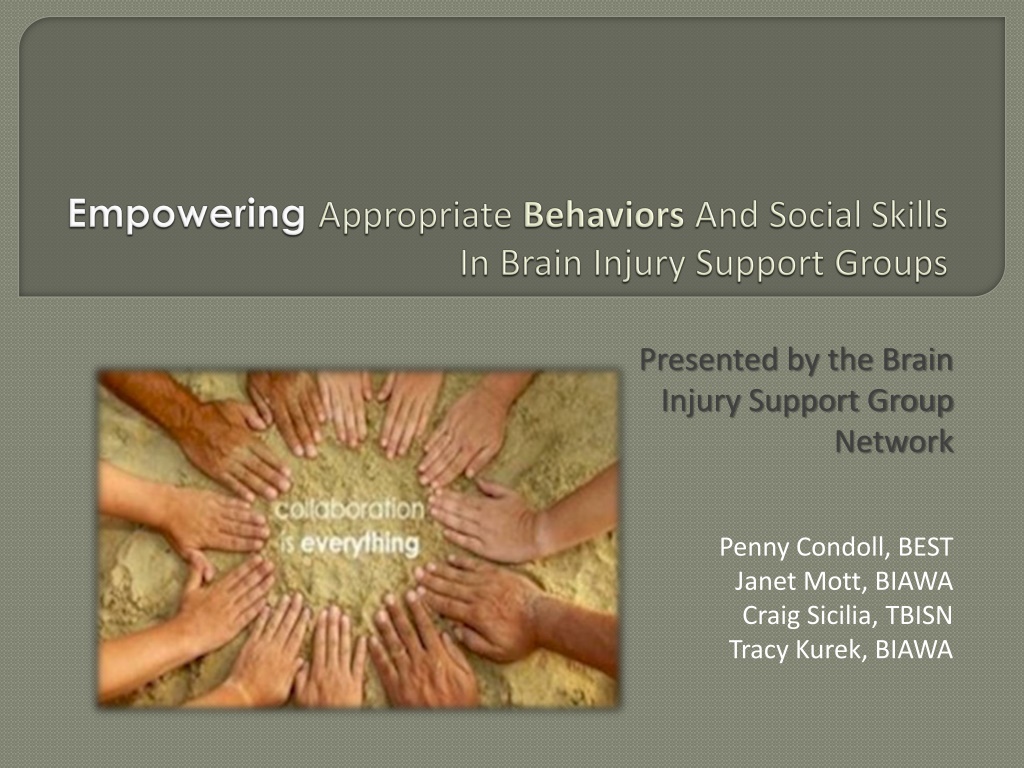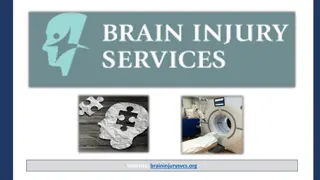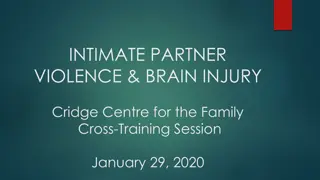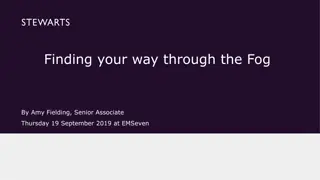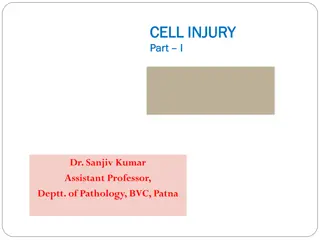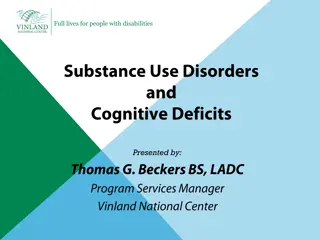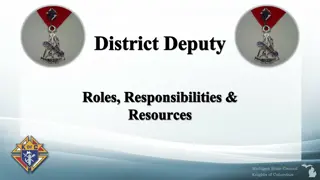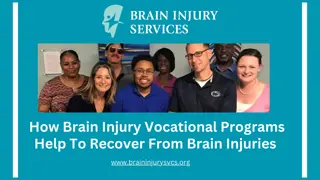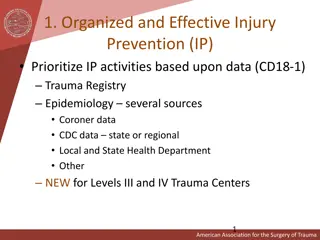Effective Strategies for Managing Brain Injury Support Group Meetings
Strategies for managing brain injury support group meetings include setting group agreements, creating safety plans, practicing appropriate communication skills, and understanding emergency response roles. It is essential to address conflicts, prepare meeting environments, and involve members in establishing ground rules to ensure productive and supportive gatherings.
Download Presentation

Please find below an Image/Link to download the presentation.
The content on the website is provided AS IS for your information and personal use only. It may not be sold, licensed, or shared on other websites without obtaining consent from the author. Download presentation by click this link. If you encounter any issues during the download, it is possible that the publisher has removed the file from their server.
E N D
Presentation Transcript
Presented by the Brain Injury Support Group Network Penny Condoll, BEST Janet Mott, BIAWA Craig Sicilia, TBISN Tracy Kurek, BIAWA
Sometimes even the most well-connected group and well-prepared facilitator have meetings where a member dominates the conversation or someone has an emotional outburst. Conflicts occur. Take a Deep Breath
Setting the Environment Group Agreement and Buy-in Creating Safety Plan and Ground Rules for your group What to do when Ground Rules are not followed Q&A
Meeting Preparation: signs, reminders Phone Sensitive to bright lights, noise, and activity. Before each group, check the meeting room and adjust lighting or seating to decrease distractions. Any other ideas?
Should be formed in the first few meetings Group should decide Network with other established support groups to assist in developing ground rules. What will and will not work for your group. For example, establishing a guideline that only one person can speak at a time is reasonable, however, asking members to never stray from the discussion topic is not. Be flexible
Keep the ground rules basic Casual brain-storming session during the first meeting or once a year Add ideas as they develop The important point is to make sure that the members have ownership of the rules they will follow.
Practice appropriate social and communication skills Remind members guidelines are agreements to help everyone get the most out of the meetings, and are not meant as reprimands.
Understand roles of people who can help security vs. police Determine who does what in an emergency Medical emergencies vs. security emergencies
Guidelines are reviewed at each meeting posted on the wall of the meeting room written out on that session s agenda Facilitator or group member reads the guidelines Three examples of guidelines:
(From the Tacoma, WA Brain Injury Support Group) One person speaks at a time. Accept and affirm each other. Differences of opinion are ok. What is said here, stays here. We are all equal. Respect other member s differences. Offer support.
(From the Cherry Hill Brain Injury Support Group in Seattle, WA) We ask that members strive to arrive on time. If you arrive late, please enter quietly and try not to disrupt the group conversation or activity. We expect every person attending this group to be very respectful and positive to other members. You only need to share with others what you are comfortable sharing. It is okay to pass" when asked to speak. We give equal time for everyone to speak, so before speaking twice, make sure everyone else has had the chance to speak once. When speaking try to use "I" statements, talk about your own experience. Refrain from giving advice to another group member, unless that person specifically requests it. Always make sure to keep the things that you hear in this group confidential.
(from the Puyallup Brain Injury Support Group) Ground Rules I. Respect : Respect will be shown at all times between members of the group. This includes listening to each other and trying not to interrupt. No yelling, swearing, or in-appropriate comments will be tolerated (see sect II) II. In-appropriate comments or behaviors: The first incident will receive a warning. The second will be a written letter explaining the situation and what actions will occur if it happens again. This letter will be signed by the facilitator and the member. The third incident will involve the entire group voting on whether or not the person is allowed to continue being part of the group. The result will be either the person can no longer attend the group or that they can, but with further instructions on what to do if the behavior/comments continue.
Display board Flip chart Agenda at each meeting Laminated copies available for members to read out-loud at the start of each session. Why? Helpful for newcomers Remind regular members
Examples: Side conversation: If someone is sharing and two people are having another side conversation, you can stop the speaker and say, Adia and Brian, remember that the ground rules say that only one person will speak at a time. Flags Visual reminders not to have side conversations Timers Empower group to help
Immediately stop them by physically holding up your hand Ask them to redirect their behavior A dedicated person to redirect person out of group environment Example: Carlos, in the ground rules, we agreed to respect and listen without judging others. Calling another member lazy is not respectful. Carlos, please say something positive or constructive if you would like to add to the conversation.
Useful if a member is talking for a long time or getting off-topic. Example: Thank you, Larry, for sharing. That sounds interesting let s talk about it more after group. or Larry, you were starting to tell us about .. I bet the group would like to hear about that. The member will feel heard and the conversation can get back on track.
Follow-up individually Limit attendance Request they take a break from the group until he or she can come back and follow the group agreements Be respectful during this conversation May suggest attending another type of group before returning Groups specifically for anger management or post traumatic stress disorders may be more appropriate for some members.
If you have tried other methods and the participant s behavior becomes aggressive or violent towards another member, get additional support.
Security or managerial staff available? How you can quickly contact them? If you expect there will be a conflict, you can also ask your advisor to attend the meeting.
A backup support person in the group who will contact the building security or staff. If an incident occurs, contact your advisor and building security as soon as possible.
BISGN TEAM: Support Group Advisors/Coordinators If requested, Help setting up a plan Telephone or In-person meeting Offer to attend a meeting Provide resources of valuable resources for crisis intervention (i.e TBI Helpline, Suicide help-lines, Mental Health crisis lines, online resource) Continued training opportunities A team who believes support groups can be a very valuable resource for individuals with a brain injury.
Contact Information for BISGN Penny Condoll 1-877-719-BEST Janet Mott 206-972-9305 Craig Sicilia 509-218-7982 Tracy Kurek 253-377-8392 Brenda Jackson 1-877-719-BEST
